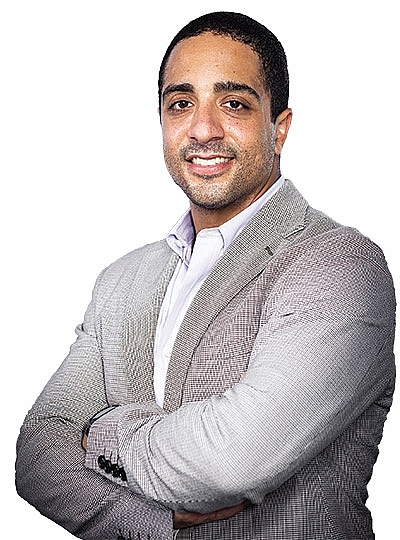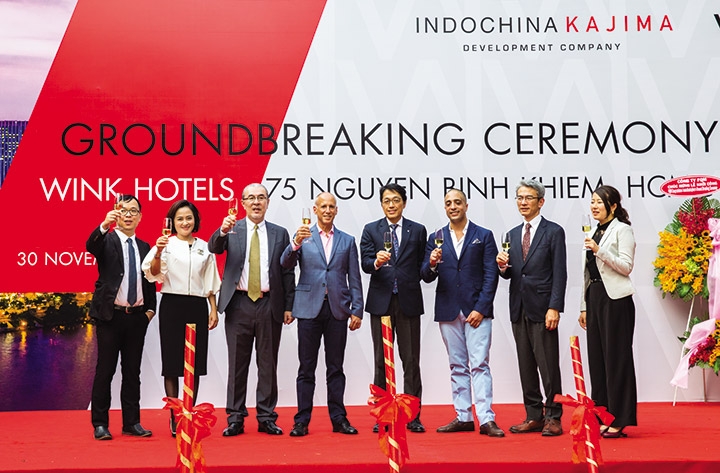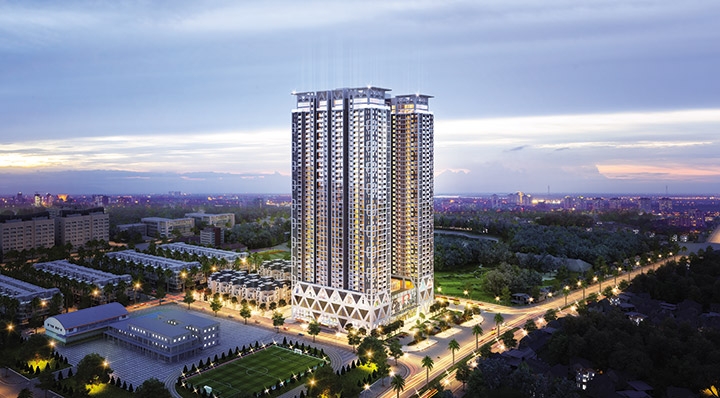A builder of novelties
 |
| Chief operating officer Michael Piro |
Congratulations on your 20-year milestone in developing high-end real estate projects in Vietnam. How would you evaluate your achievements so far in the country?
Spearheaded by our CEO Peter Ryder, we have established ourselves as one of the premier real estate developers in Vietnam, highlighted by our beach resort developments: Four Seasons The Nam Hai, Six Senses Con Dao, and Hyatt Regency Danang. These properties were truly revolutionary and the first of their kind back when we opened them. Since then, there have been many new entrants into the market, and I truly believe that we paved the way for other luxury developments in Vietnam.
In 2016, we entered into a joint venture with Japan’s largest overseas developer, Kajima Corporation, forming Indochina Kajima. This will be the vehicle that will drive our presence in the market in the coming years, and we are extremely excited to be working alongside our Japanese partners. We may not have the size or scale of some of our peers in this field, but we promise to bring innovative real estate concepts that uphold the highest standards in design, sustainability, and service. These core pillars will continue to be at the heart of our business philosophy, as you will soon find out with our subsequent developments.
2018 was a remarkable year for Indochina Capital, with the official launch of the first Wínk Hotels in Vietnam. What does this start mean to the company?
The ground-breaking of our first Wínk Hotels, located at 75 Nguyen Binh Khiem in Ho Chi Minh City, was a major milestone for our company on many levels. Firstly, it marked the start of the first of many projects together with Kajima, and the debut of Vietnam’s first international-standard hospitality brand – Wínk.
Secondly, it was the culmination of all the hard work of the Indochina Kajima team, overcoming one challenge after another to arrive at this point – we are all so proud. We are finally building something again!
Everyone who has been involved in this process understands all the preparation, the site sourcing, the analysis, and the decision-making that was required to arrive at this end result, and we could not be more excited for our first Wínk Hotels to open its doors in a little over a year’s time. Wínk is our next statement, the next stage in our development portfolio and Vietnam’s maturity as a global hospitality player.
Without divulging too much, in 2019 we will be more aggressive and expand our search for land plots all over Vietnam. For Indochina Kajima, Wínk Hotels will be a part of a much larger portfolio of real estate properties. The team will continue to work hard on diversifying our body of work, and we hope to make an announcement (or two) sometime in 2019.
 |
You have just reached a strategic advisory agreement for a high-end residential development in Hanoi. What do you stand to gain from this agreement in the upcoming time?
We were recently appointed to be the strategic advisor and lead sales agent for The Zei, a high-end complex in My Dinh. We are quite selective for projects to get involved with, and thoroughly studied this project before becoming engaged. Our objective is to make The Zei a landmark development in the My Dinh area, similar to the success that we experienced with Indochina Plaza Hanoi.
Our services for The Zei draw on the synergy between two of our core divisions, Indochina Strategic, our advisory arm, and Indochina Properties, our brokerage arm. This will help expand our business in residential advisory. The real estate brokerage industry in Vietnam, particularly in Hanoi and Ho Chi Minh City, is highly saturated with many players in the market, but you almost never see a broker that manages to add value to the projects they are selling. At Indochina Strategic, we pride ourselves on having a hands-on approach, allowing our clients to deliver a high-quality product similar to past Indochina Capital developments. Through our international network, we have brought in world-class consultants and designers who will help us reach our client’s goals. It is rare to see big names coming together for a real estate project in Hanoi, which underscores the confidence we all have in this development.
 |
| The Zei – Vibrant energy in the heart of My Dinh, Hanoi |
What do you think about the prospects of the Vietnamese real estate sector in general and the hospitality sector in particular in the next couple of years? Do you think foreign investors will keep flocking to the market? What challenges and opportunities do you foresee?
The market operates on a cycle. For reference, the 2011-2013 period was when the market reached rock bottom, followed by the recovery period between 2014 and 2015, which culminated in the current 2016-2018 period where the market is booming with a surge in demand and take-up rate. While the residential segment has lost momentum due to a lack of innovative products in the market, office and retail market fundamentals, especially in Hanoi and Ho Chi Minh City’s central business districts, remain strong. Despite the aforementioned cycle and deceleration of the market, we have observed that developments that are well-located and offer high-quality products continue to perform strongly in sales and occupancy.
With that in mind, we remain bullish on the market’s potential, as we are confident in our abilities to not only develop the right projects, but also to steer our advisory clients in that direction. Our hospitality experience has made it a focus of our consultancy services. With the ever-growing tourist arrivals, globalisation and relaxation of visa protocols, we trust that these factors will allow us to keep focusing on this sector.
In the majority of quality real estate projects in Vietnam, the 30 per cent cap on sales to foreigners is used up quickly, once again proving the importance of the development’s quality. Institutional investors, mostly from South Korea and Japan, are keen to acquire operating properties and land, due to the strong expat demand and the relatively lower cost of capital in their home country.
The biggest challenge in the market today is the developer’s ability to differentiate themselves, to build a unique product. Unfortunately, many Vietnamese developers lack creativity and try to emulate an already proven formula. This also doubles as an opportunity, as developers who understand this issue can take the lead and introduce something new to the market. Additionally, more and more established brands are trying to enter the market, which allows developers to take advantage of the new experiences that these brands can offer.
What the stars mean:
★ Poor ★ ★ Promising ★★★ Good ★★★★ Very good ★★★★★ Exceptional
Related Contents
Latest News
More News
- Wink Hotels to revolutionise the hotel industry (June 30, 2022 | 10:00)
- Wink Hotels revolutionises new breed of hotels for travellers (June 27, 2022 | 09:49)
- Getting back in the travel groove for 2022 (January 04, 2022 | 10:27)
- Bank and real estate giants team up (April 26, 2021 | 09:51)
- Indochina Kajima commences Phu Yen luxury tourism project (April 05, 2021 | 13:04)
- Foreign investment continues to flow into hospitality market (March 15, 2021 | 11:17)
- Satellite towns with purpose (January 19, 2021 | 11:00)
- Wink Hotels’ first hotel opening in Ho Chi Minh City (January 19, 2021 | 10:59)
- Seizmic shifts in Vietnamese real estate market (November 26, 2020 | 12:34)
- Wealth creation amid the coronavirus conundrum (November 09, 2020 | 08:20)

 Tag:
Tag:




















 Mobile Version
Mobile Version